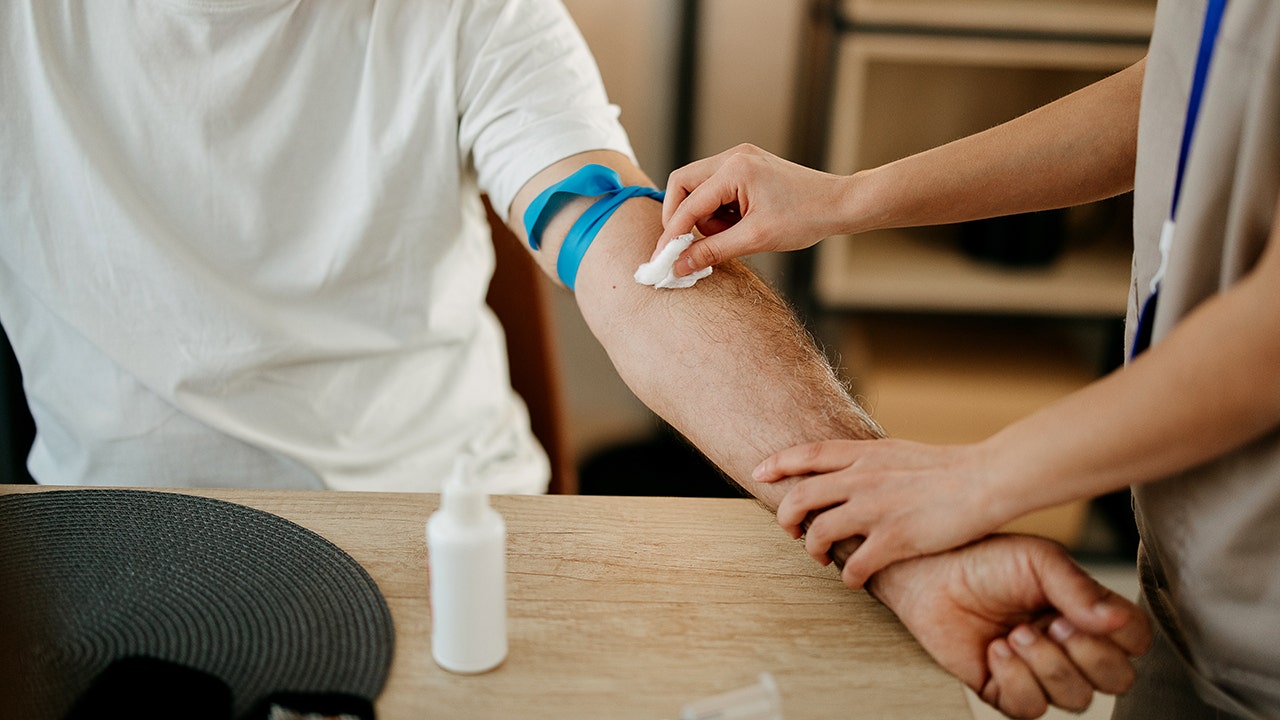Health
Jynneos Vaccine Offers Protection Against Mpox, New Studies Confirm

Why It Matters: A resurgence is possible.
In the United States, there have been more than 30,000 mpox cases over the last year, with cases declining sharply after last summer’s peak. Mpox cases have fallen off globally, too, and the World Health Organization declared an end to the public health emergency earlier this month.
“But the outbreak is not over, and we need to remain alert and continue our prevention efforts,” Dr. Christopher Braden, the mpox response incident manager at the C.D.C., said at a news briefing on Thursday.
More than 1.2 million doses of the vaccine have been administered in the United States over the last year. But the number of doses administered has declined since last summer, and nationally just 23 percent of people who are considered to be at risk have been fully vaccinated, according to the C.D.C. There are also wide geographic, racial and ethnic disparities in vaccine coverage.
And it is clear that the vaccine is not a silver bullet. In a new cluster of cases recently reported in Chicago, many of the patients were fully vaccinated.
The Chicago Department of Health and the C.D.C. are currently investigating this cluster, which now includes 21 people, all of whom have had mild symptoms, Dr. Demetre Daskalakis, the White House national mpox response deputy coordinator, said at the briefing on Thursday.
“What we do know, however, is that vaccination makes getting and spreading mpox less likely and importantly, may decrease the chances of severe illness, hospitalization and death, even if it doesn’t prevent infection,” he said.
Background: The vaccine was largely unknown.
Jynneos, which is manufactured by a small Danish company, is the safer of the two vaccines available for mpox. It was initially intended to be given as two doses, both injected underneath the skin, 28 days apart.
Because supplies of the vaccine were limited, however, officials deviated from the intended regimen.
Some began administering just a single dose of the vaccine, which some studies had suggested might provide considerable protection. Then, last August, federal officials provided an emergency authorization for intradermal dosing to help stretch the available supply.
But there has been little evidence regarding the effectiveness of these strategies, which were based largely on research findings and not on the real experiences of patients.
What’s Next: Officials prepare a new push for vaccination.
Cases may increase in the coming weeks “as people gather for festivals and other events,” the C.D.C. has warned. Public health experts and officials are urging people who are at risk to get vaccinated before Pride events begin next month.
“For me, the top-line message would be if you haven’t gotten one dose, get it now, because you do need to wait four weeks before you get your second dose,” said Dr. Jacqueline L. Gerhart, the chief medical officer at Epic Research and one of the lead investigators of the N.E.J.M. study.
Additional studies of the vaccine, including research into how well it holds up over time, are currently underway, Dr. Daskalakis said.
Sharon Otterman contributed reporting.

Health
How to Access GLP-1 Medications After FDA New Rules | Woman's World

Use left and right arrow keys to navigate between menu items.
Use escape to exit the menu.
Sign Up
Create a free account to access exclusive content, play games, solve puzzles, test your pop-culture knowledge and receive special offers.
Already have an account? Login
Health
First blood test for Alzheimer’s diagnosis cleared by FDA

The first-ever blood test to detect Alzheimer’s disease has been cleared by the U.S. Food and Drug Administration (FDA).
In a Friday press release, the agency announced its approval of the first in-vitro diagnostic device, Lumipulse.
The method is intended for early Alzheimer’s detection in adult patients over the age of 55 who are exhibiting signs and symptoms of the disease.
ALZHEIMER’S DISEASE COULD BE PREVENTED ANTIVIRAL DRUG ALREADY ON MARKET
The new technology works by detecting amyloid plaques in the brain, a telltale sign of Alzheimer’s.
The first-ever blood test to detect Alzheimer’s disease has been cleared by the U.S. Food and Drug Administration. (iStock)
While PET scans can pick up these plaques, they can be “costly and time-consuming” while exposing patients to radiation, according to the FDA.
The new Lumipulse device reduces the need for a PET scan or other invasive testing, the agency said.
CLICK HERE TO SIGN UP FOR OUR HEALTH NEWSLETTER
In a clinical study of 499 plasma samples from cognitively impaired adults, the Lumipulse test detected the presence of amyloid plaques in 91.7% of individuals.
The results indicate that the new blood test can “reliably predict the presence or absence of amyloid pathology associated with Alzheimer’s disease at the time of the test in patients who are cognitively impaired,” the FDA concluded.

The new technology works by detecting amyloid plaques in the brain, a telltale sign of Alzheimer’s, according to the FDA. (iStock)
The FDA noted the risk of false positive test results from Lumipulse, which could lead to inappropriate diagnosis and unnecessary treatment.
FDA Commissioner Marty Makary, M.D., MPH, wrote in a statement, “Alzheimer’s disease impacts too many people, more than breast cancer and prostate cancer combined.”
For more Health articles, visit www.foxnews.com/health
“Knowing that 10% of people aged 65 and older have Alzheimer’s, and that by 2050 that number is expected to double, I am hopeful that new medical products such as this one will help patients,” he said.

“Today’s clearance is an important step for Alzheimer’s disease diagnosis, making it easier and potentially more accessible for U.S. patients earlier in the disease,” an expert commented. (iStock)
Center for Devices and Radiological Health Director Michelle Tarver, M.D., PhD, also commented in the press release that nearly seven million Americans are living with Alzheimer’s.
“And this number is projected to rise to nearly 13 million,” she said.
“Today’s clearance is an important step for Alzheimer’s disease diagnosis, making it easier and potentially more accessible for U.S. patients earlier in the disease.”
Health
Denise Austin’s Easy Standing Ab Exercises Blast Menopause Belly Fat

Use left and right arrow keys to navigate between menu items.
Use escape to exit the menu.
Sign Up
Create a free account to access exclusive content, play games, solve puzzles, test your pop-culture knowledge and receive special offers.
Already have an account? Login
-

 Austin, TX7 days ago
Austin, TX7 days agoBest Austin Salads – 15 Food Places For Good Greens!
-

 Technology1 week ago
Technology1 week agoNetflix is removing Black Mirror: Bandersnatch
-

 World1 week ago
World1 week agoThe Take: Can India and Pakistan avoid a fourth war over Kashmir?
-

 News1 week ago
News1 week agoJefferson Griffin Concedes Defeat in N.C. Supreme Court Race
-

 News1 week ago
News1 week agoReincarnated by A.I., Arizona Man Forgives His Killer at Sentencing
-

 News1 week ago
News1 week agoWho is the new Pope Leo XIV and what are his views?
-

 Lifestyle1 week ago
Lifestyle1 week agoAndré 3000 Drops Surprise Album After Met Gala Piano Statement
-

 News1 week ago
News1 week agoEfforts Grow to Thwart mRNA Therapies as RFK Jr. Pushes Vaccine Wariness

















